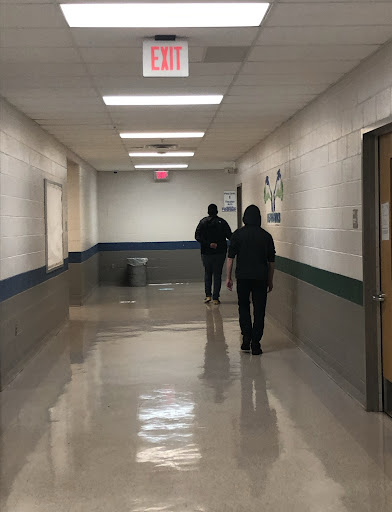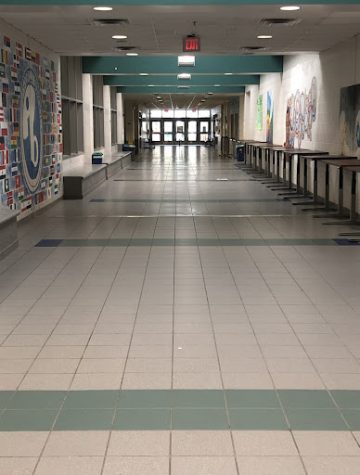SLHS takes on Tardy Sweeps

Images via Grayson Quigley
The ever present issue of student tardiness at South Lakes continues to create issues upon entering the third quarter of the 2022-2023 school year, however, this time the administration has a solution. As of late, SLHS has begun to implement “Tardy Sweeps” as a way to encourage students to get to class on time.
So what is a “tardy sweep”? When the bell rings, either in the morning or in between periods, teachers are now being asked to close and lock their doors and begin class. Any students not in a classroom will be collected by administrators patrolling the halls who will give them a form to fill out and an escort to their class. Additionally, having a pass won’t protect you from these randomized sweeps, as teachers are now enforcing the “10-10 rule”: hallpasses are not to be distributed to students for the first and last 10 minutes of class.

Many students have expressed their displeasure with this new system due to both its rigidity and irregularity. With no way to anticipate when a tardy sweep might occur, students must now be more careful with when they show up to class. These sweeps target a problem and solve it on the surface, however—because they are not done every day—a student who is late to almost all of their classes and a student who is never late at all are punished the same.
Hadley Smith, a South Lakes sophomore, expresses her feelings on the tardy sweep: “I think that tardy sweeps are unproductive because they take kids out of class.” Junior Ellie Janow expands on this: “They reduce learning time and are unnecessary for most students. They should identify the root of the problem instead of trying to mitigate tardiness.” Since students who may have only been a minute or so late are now being taken to rooms to fill out forms, more class time is being lost to the sweep than to their tardiness would have initially caused.
While there has been some backlash from students, there are also some who are able to reason with the idea. South Lakes senior Caitlin Quigley notes that the idea is important but the execution so far has been poor: “They are just an extension of the failed e-hallpass system.” Many people within schools—students, teachers, administrators, etc—would not disagree that being late to class is disruptive and a problem that needs to be solved. However, this hasty solution has caused more irritation than anything else amongst the students, and in some cases, teachers. Those affected hope that these tardy sweeps are still in their trial and error phase, and will be improved upon in the future to better solidify a comfortable learning environment for all.
Grayson Quigley is a Junior at South Lakes and a first year journalism student. He’s excited to join the Sentinel as a Staff Writer. He enjoys reading...















